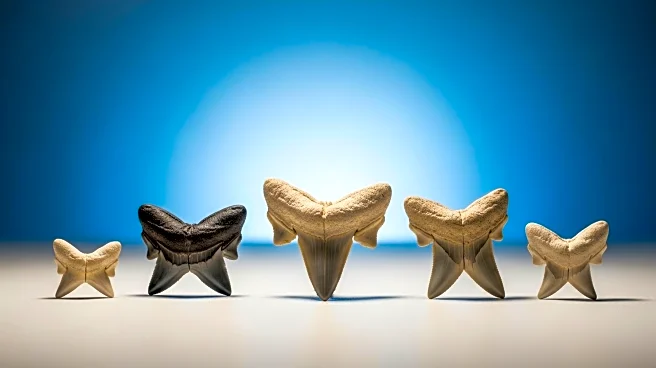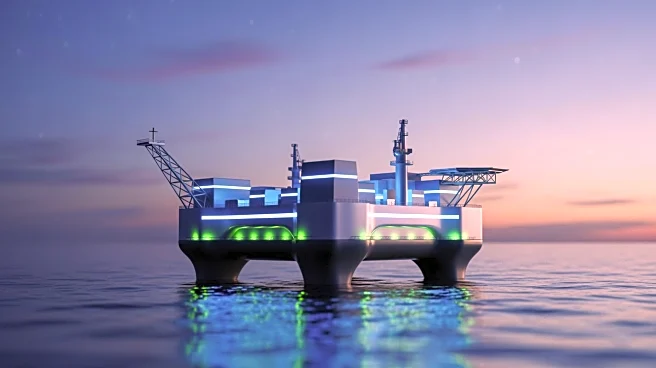What's Happening?
Recent research conducted by scientists in Germany has revealed that ocean acidification is causing shark teeth to become more brittle and weaker. The study, published in Frontiers in Marine Science, examined the effects of different ocean acidification scenarios on the teeth of Blacktip reef sharks. Researchers found that more acidic oceans, driven by human-generated CO2 emissions, lead to significant damage to shark teeth, including visible surface damage such as cracks and holes, increased root corrosion, and structural degradation. The study utilized discarded teeth from an aquarium housing the sharks, incubating them in tanks with varying pH levels to simulate current and future ocean conditions. The findings highlight the vulnerability of shark teeth, which are vital for their survival as top ocean predators.
Why It's Important?
The implications of this study are significant for marine ecosystems and biodiversity. Sharks play a crucial role in maintaining the balance of oceanic food webs, and their ability to catch prey is directly linked to the integrity of their teeth. As ocean acidification progresses, the structural weakening of shark teeth could impair their hunting efficiency, potentially leading to declines in shark populations. This, in turn, could disrupt marine ecosystems, affecting species diversity and the health of ocean habitats. The study underscores the broader impact of climate change on marine life, emphasizing the need for efforts to mitigate CO2 emissions and preserve ocean pH levels to protect marine biodiversity.
What's Next?
Future research is needed to explore the effects of ocean acidification on living sharks, including their ability to remineralize or replace damaged teeth. Understanding the energy costs associated with these processes in acidified waters will be crucial. Additionally, studies should investigate the cumulative impacts of acidification on species with slower tooth replication cycles. Conservation efforts aimed at maintaining ocean pH levels near the current average of 8.1 could be critical in safeguarding the physical integrity of predators' tools and ensuring the stability of marine ecosystems.
Beyond the Headlines
The study highlights the cascading effects of climate change on marine ecosystems, illustrating how changes in ocean chemistry can impact predator-prey dynamics and food web structures. It serves as a reminder of the interconnectedness of environmental factors and the importance of addressing climate change to preserve ecological balance.








